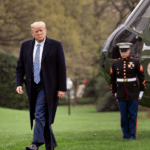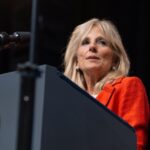




Judge Juan Merchan has denied the request by President-elect Donald Trump to dismiss his conviction in the hush money case, marking a significant decision in the legal proceedings surrounding Trump.
The Washington Examiner reported that Merchan concluded that presidential immunity cannot be applied to Trump's case, as it relates to conduct outside of official duties.
In a pivotal moment, Judge Merchan rejected the argument put forth by Trump's legal team that Supreme Court precedents on presidential immunity shield him from legal liability in this instance.
Trump's team claimed that this ruling should have prevented the court proceedings in his case. Their argument was based on the assertion that the Supreme Court’s stance on this matter exempts Trump from facing trial for actions related to the incident.
Merchan countered this argument by stating that the findings against Trump were related to actions taken outside the scope of presidential duties.
The judge emphasized that these alleged activities were not covered by the protections afforded to presidential actions. Furthermore, the misconduct in question was linked to the falsification of business records aimed at camouflaging a hush money payment.
This case is unprecedented, as it is the first time a U.S. president has been convicted for falsifying business documents to cover up payments intended to silence allegations. Trump’s conviction was handed down in May, reflecting a historical moment in U.S. legal history.
Originally, Trump’s sentencing was scheduled for July. However, the process encountered a delay due to ongoing discussions over presidential immunity. This postponement highlighted the legal team's efforts to annul the conviction, leaning on the Supreme Court's interpretations to bolster their defense.
In November, the sentencing faced another indefinite delay. This was to provide additional time to present legal arguments, indicating the complexity and significance of the legal theories being presented. Despite the added time, Merchan issued a ruling contrary to Trump's expectations, adding another layer to the ongoing saga.
In the wake of the judgment, Trump’s representatives expressed strong disapproval of the decision. Steven Cheung, a spokesman for Trump, described the outcome as a direct breach of Supreme Court rulings, casting it as a violation of long-standing legal norms.
Cheung argued that the case should not have been initiated, asserting that constitutional provisions demand its immediate dismissal.
According to Trump's team, the necessity for the president to execute essential duties without interference from lingering legal proceedings was paramount. Cheung underscored this by contending that Trump should be free to concentrate on the presidential transition and his responsibilities.
Despite the setback, Trump's legal team argues that his second term win provides another reason for dismissing the case.
The argument hinges on whether his election victory grants him immunity from this conviction. However, Judge Merchan has not yet issued a ruling on this specific point, leaving that particular line of argument unresolved.
Meanwhile, Judge Merchan's written opinion elaborated on the decision, highlighting the lack of error impacting Trump's conviction. He noted that any potential error related to evidence introduction was insignificant, due to the strength of the evidence proving guilt.
Merchan further explained that even if the court found the related evidence represented official acts under the jurisdiction of Supreme Court decisions, the motion would still fail. He emphasized that introducing the disputed evidence did not create a significant procedural error during the trial.
The progression of the case continues to capture attention, as it deals with substantial legal precedents and presidential authority. Trump’s situation serves as a critical examination of the limits of presidential immunity and how it interacts with unofficial actions.



